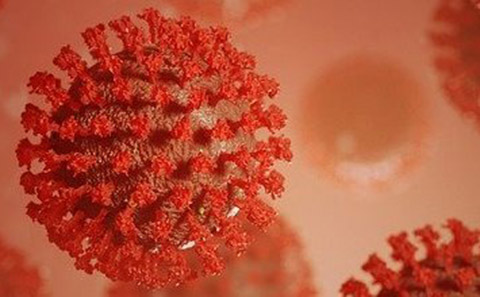
Research by the University of Southampton into the effectiveness of COVID-19 vaccines in people with lymphoma has shown that repeated vaccination increases their ability to prevent infection from the virus, particularly after four doses.
The finding, from the two-year PROSECO study, is important because blood cancer patients have compromised immune systems – either as a result of cancer, or from cancer treatments. This leaves them more vulnerable to COVID-19 than other people and raises questions over how well they respond to vaccination.
Latest findings from the study are published in the medical journal The Lancet.
The researchers, led by Dr Sean Lim of the Centre for Cancer Immunology at the University of Southampton, recruited around 500 people with lymphoma from nine hospitals in England throughout 2021 and 2022. Blood samples were taken from the patients before their first vaccination and then at several intervals after their first, second, third and fourth doses.
The scientists aimed to evaluate the strength of the cancer patients' immune system response to the vaccine and how effective this might prove in protecting them from COVID. The team examined the link between antibody levels and T-cell responses with COVID-19 infection and symptom severity.
Results suggest that a fourth vaccine dose generates antibodies which are more effective compared to those observed after a third dose. This implies that with increasing vaccine doses, higher quality antibodies are produced, resulting in lower antibody levels being needed to successfully fight the COVID-19 infection. They also observed that in 9 participants who were admitted to hospital with COVID-19, over half (56%) had absent T-cell responses, compared to only a fifth (16%) of 45 participants who were infected, but did not require hospital admission.
Dr Lim comments: "While the threat from COVID-19 is greatly reduced for most of us, for those with weakened immune systems, such as blood cancer patients, the risk remains very real. Our findings support the need for immunocompromised patients to continue booster vaccinations to maintain a high level of protection.
"The PROSECO study also shows that antibody testing, and potentially T-cell testing, can help establish the risk of COVID-19 for patients with lymphoma at an individual level."
A new study called STRAVINSKY, co-led by the University of Southampton, is due to start recruiting within in the next month or so. It will investigate whether antibody testing can also identify those who remain at greatest risk of severe COVID-19 infection after vaccination, in vulnerable populations beyond lymphoma patients.
The PROSECO study (Prospective Observational Study Evaluating COVID-19 Vaccine Immune Responses in Lymphoid Cancer) is funded by the Blood Cancer UK Vaccine Research Collaborative and involves researchers from Southampton, London, Oxford, Nottingham, Leicester, Newcastle, Portsmouth, Hereford, Bedford and Norwich.
The STRAVINSKY study is funded by the National Institute for Health and Care Research (NIHR) and is led by researchers from Southampton, Birmingham, Oxford, Imperial College and Queen Mary in London, and also involves researchers from Glasgow, Nottingham, Leicester, Newcastle, Sheffield, Portsmouth and Cardiff.






